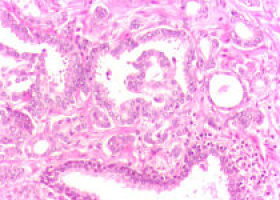
A new cancer clinical trial by the ECOG-ACRIN Cancer Research Group (ECOG-ACRIN) shows that a drug that utilises the body’s immune system to target and eliminate cancer cells appeared to reduce the risk of distant metastases for an aggressive form of skin cancer when given immediately after surgery, but did not significantly reduce the overall risk of recurrence, which was a co-primary endpoint of the trial.
The randomised phase 3 STAMP trial (EA6174) is the largest clinical study to date evaluating pembrolizumab, an anti-PD-1 therapy, as adjuvant therapy for Merkel cell carcinoma following surgical removal of the tumour.
The STAMP trial found that after two years, 73% of patients receiving pembrolizumab showed no cancer recurrence, compared with 66% among those who did not receive the drug.
Although this difference did not reach statistical significance, patients receiving pembrolizumab had a 42% lower risk of developing distant metastases—cancer spreading to organs such as the liver, lungs, or bones – which was a secondary objective of the study.
“The STAMP trial provides the first evidence that immunotherapy with pembrolizumab after surgery may help people with Merkel cell carcinoma by preventing their cancer from returning in organs considered distant from the site of the original disease,” said lead investigator Janice M.
Mehnert, MD, co-chair of the ECOG-ACRIN Melanoma Committee and director of Melanoma and Cutaneous Medical Oncology at NYU Langone Health’s Perlmutter Cancer Centre.
“This is much-needed good news for people who are living with the highly aggressive cancer that is Merkel cell carcinoma,” Dr. Mehnert added.
Merkel cell carcinoma is a fast-growing cancer that begins in the skin’s sensory cells, often appearing as a single, painless bump on sun-exposed areas.
Although skin cancer is by far the most common type of cancer in the United States, Merkel cell carcinoma, also called neuroendocrine carcinoma of the skin, is highly uncommon, occurring in no more than three out of one million people annually.
It is extremely aggressive, with fewer than half of patients surviving 5 years after diagnosis.
The phase 3 multicenter study (NCT03712605) was conducted from 2018 to 2023 and involved 293 patients whose tumours had been surgically removed.
Of these, 147 were randomly assigned to receive pembrolizumab infusions after surgery, while 146 were observed without additional drug therapy. Some participants also received radiation as advised by their physicians.
Because Merkel cell carcinoma is a rare tumour, Mehnert emphasised that national collaboration is essential for recruiting patients for a trial of this scale.
To find out more watch the video here.
Source: ECOG-ACRIN Cancer Research Group
The World Cancer Declaration recognises that to make major reductions in premature deaths, innovative education and training opportunities for healthcare workers in all disciplines of cancer control need to improve significantly.
ecancer plays a critical part in improving access to education for medical professionals.
Every day we help doctors, nurses, patients and their advocates to further their knowledge and improve the quality of care. Please make a donation to support our ongoing work.
Thank you for your support.